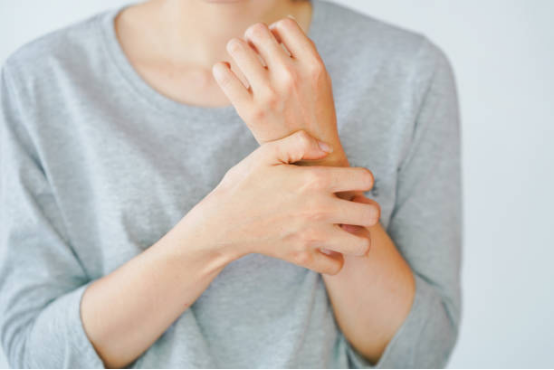For those grappling with atopic dermatitis, the journey can often resemble a challenging uphill endeavor. This is especially true for adolescents and adults who must balance the everyday demands of life while dealing with the tangible and emotional stresses associated with this chronic condition. The relentless itching, associated discomforts, and unexpected flare-ups can be incredibly daunting, regularly affecting sleep quality, self-esteem, and mental health. Yet, by arming oneself with valuable knowledge and adopting a proactive approach to care, managing atopic dermatitis can indeed become a reality. This leads to not only healthier skin but also an enhanced quality of life.

Understanding Triggers and Causes of Atopic Dermatitis
The origins of atopic dermatitis are not attributed to a single cause; rather, it is a multifaceted condition driven by a combination of genetic influences, immune system responses, and environmental elements. For many individuals, allergens such as pollen, pet dander, and dust mites serve as triggers for flare-ups. Additionally, certain foods or shifts in seasons can exacerbate symptoms for others. Stress is another major factor, frequently initiating a wave of itching and inflammation that feels inescapable. Moreover, environmental changes such as dry winter air or hot, humid summers can further aggravate symptoms.
An essential aspect of managing atopic dermatitis is the identification of personal triggers. Maintaining a journal to monitor flare-ups and potential causes, such as new skincare products, significant stress events, or dietary adjustments, can aid in recognizing patterns. Once these triggers are discovered, efforts to minimize exposure can lead to a reduction in flare-ups, giving your skin a better opportunity to heal and recover.
Exploring Medical Treatment Options for Atopic Dermatitis
In the realm of atopic dermatitis management, medical treatments are often central. For cases that are mild to moderate in nature, doctors generally recommend topical corticosteroids to alleviate itching and reduce inflammation. Moisturizers developed specifically for sensitive skin are advantageous as they help repair the skin's barrier and
maintain hydration. Individuals with more severe symptoms might require further interventions such as phototherapy (light therapy) or systemic medications like immunosuppressants. Recent advancements in the field have introduced biologic therapies which target specific pathways in the immune system to effectively control inflammation. Collaborating closely with a dermatologist is crucial to create a personalized treatment plan that suits your individual needs and lifestyle.
The Importance of a Consistent Skincare Routine
For those managing atopic dermatitis, establishing a consistent, gentle skincare regimen can make a significant difference. It begins with using mild, fragrance-free cleansers and moisturizers to avoid further irritation. Moisturizing at least twice daily—especially post-bathing—is critical for preserving the skin's protective barrier.
To minimize irritation, avoid using harsh soaps, hot showers, and rigorous scrubbing, as these can strip away the skin's natural oils and exacerbate dryness. Opt for lukewarm water and gently pat the skin dry before applying a rich emollient moisturizer. Integrating these simple yet essential habits into your routine can substantially decrease flare-ups and keep your skin more tranquil and at ease.
Embracing Lifestyle Changes for Better Management
Beyond a dedicated skincare routine, simple lifestyle adjustments can have a significant and positive impact on managing atopic dermatitis. Known as a common trigger, stress can be mitigated by engaging in relaxation techniques like meditation, yoga, or deep breathing exercises to soothe both the mind and body, subsequently reducing flare-up occurrences.
Clothing choices are crucial as well—opting for soft, breathable materials such as cotton or bamboo helps minimize irritation. It's advisable to steer clear of tight-fitting clothes and coarse materials like wool, which can chafe sensitive skin and intensify symptoms. Additionally, maintaining optimal hydration, avoiding excessive sweating, and adhering to a balanced diet rich in anti-inflammatory foods can further enhance your skin's overall health.
Seeking Support and Building Resilience While Living with Atopic Dermatitis
Living with atopic dermatitis can sometimes evoke feelings of isolation, but it's important to remember that you're not alone. Connecting with others who have similar experiences, whether through support groups, online forums, or local meetings, can offer both comfort and valuable insights. Engaging with healthcare professionals, including dermatologists and allergists, as key allies is crucial. They can provide personalized advice and up-to-date treatment options tailored to your needs. Empowering yourself with knowledge about atopic dermatitis is an invaluable tool. The more you learn about your condition, the better equipped you will be to manage it effectively. Armed with knowledge, you can transform frustration into proactive strategies and gain better control over your symptoms.
Flourishing with Atopic Dermatitis
Effectively managing atopic dermatitis transcends mere skin treatments—it requires a holistic approach that encompasses identifying triggers, considering medical treatments, adopting a structured skincare routine, and making informed lifestyle choices. By pinpointing the factors that worsen symptoms, collaborating with healthcare professionals, developing a consistent skincare regimen, and incorporating mindful lifestyle changes, you can make meaningful progress in managing this condition.
Although a definitive cure for atopic dermatitis might not exist, living a fulfilling life with this condition is entirely possible. With patience, determination, and the right strategies, you can significantly reduce flare-ups, cultivate self-confidence, and center your attention on what truly adds value to your life. Remember, you are much more than your condition, and every step taken towards managing it signifies movement towards a healthier, happier version of yourself.





